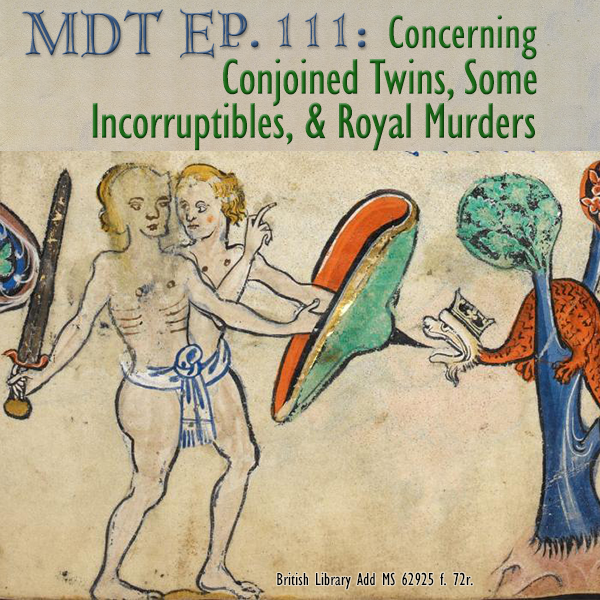- Download:
- MP3 Audio78 MB

We continue on from last episode’s look at the Green Children of Woolpit with a further consideration of what it meant to wonder at a marvel in the middle ages, with additional illustration of some wondrous things from William of Malmesbury.
Today’s Texts
- Gervase of Tilbury. Otia Imperialia. Edited and translated by S.E. Banks and J.W. Binns, Clarendon Press, 2002.
- Isidore of Seville. The Etymologies of Isidore of Seville. Translated by Stephen A. Barney, W.J. Lewis, J.A. Beach, and Oliver Berghof with Muriel Hall, Cambridge UP, 2006.
- William of Malmesbury. Chronicle of the Kings of England. Edited by J.A. Giles, translated by John Sharpe and J.A. Giles, George Bell & Sons, 1895. Google Books.
References
- Bynum, Caroline Walker. “Wonder.” Fragmentation and Redemption: Essays on Gender and the Human Body in Medieval Religion. Zone Books, 1992.
Audio Credits
- “Cletus the Slack-Jawed Yokel.” In “22 Short Films about Springfield,” The Simpsons, season 7, episode 21, written by Richard Appel et al., 14 April 1996.
- “The Boy Who Knew Too Much.” The Simpsons, season 5, episode 20, written by John Swartzwelder, 5 May 1994.
- Willy Wonka and the Chocolate Factory. Directed by Mel Stuart, screenplay by Roald Dahl, Paramount Pictures, 1971.
Image Credit: Detail from the Rutland Psalter, British Library Add MS 62925 f. 72r.



Leave a Reply